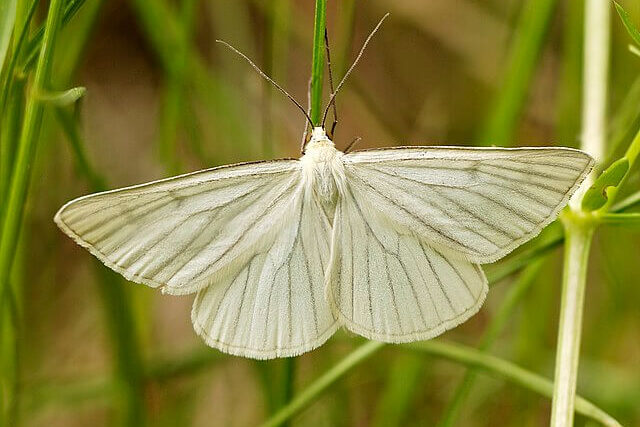
The critically-endangered black-veined moth, native to the East Kent countryside, has experienced a remarkable resurgence thanks to the habitat restoration efforts of local farmers.
Back in 1995, the black-veined moth teetered on the brink of extinction due to the loss of its chalk grassland habitat within the Wye National Nature Reserve.
In response, Natural England initiated a project that encouraged farmers to revert their fields to their natural state.
This year, surveys have unveiled a remarkable peak population of 255 black-veined moths, marking the highest count since the inception of the restoration project.
The dedicated work of the farmers is now yielding tangible results, and Dan Turson, Natural England’s farm adviser, acknowledges this success.
Dan Turson, Natural England’s farm adviser, said: “Farmers are leading nature recovery through long-term one-to-one advice and close working to create new wildflower grasslands at scale.”
These enchanting moths resemble white butterflies adorned with distinct black lines on their wings. Their survival hinges on a unique habitat, requiring a mix of tall tufts of grass and short wildflowers within the same field.
This distinctive need sets them apart from other insects in chalk grassland, making their revival a significant conservation achievement.
——————————————————————————
At Natural World Fund, we are passionate about stopping the decline in our wildlife.
The decline in our wildlife is shocking and frightening. Without much more support, many of the animals we know and love will continue in their decline towards extinction.
When you help to restore a patch of degraded land through rewilding to forests, meadows, or wetlands, you have a massive impact on the biodiversity at a local level. You give animals a home and food that they otherwise would not have had, and it has a positive snowball effect on the food chain.
We are convinced that this is much better for the UK than growing lots of fast-growing coniferous trees, solely to remove carbon, that don’t actually help our animals to thrive.
This is why we stand for restoring nature in the UK through responsible rewilding. For us, it is the right thing to do. Let’s do what’s right for nature!
Donate today at https://naturalworldfund.com/ and join in the solution!

